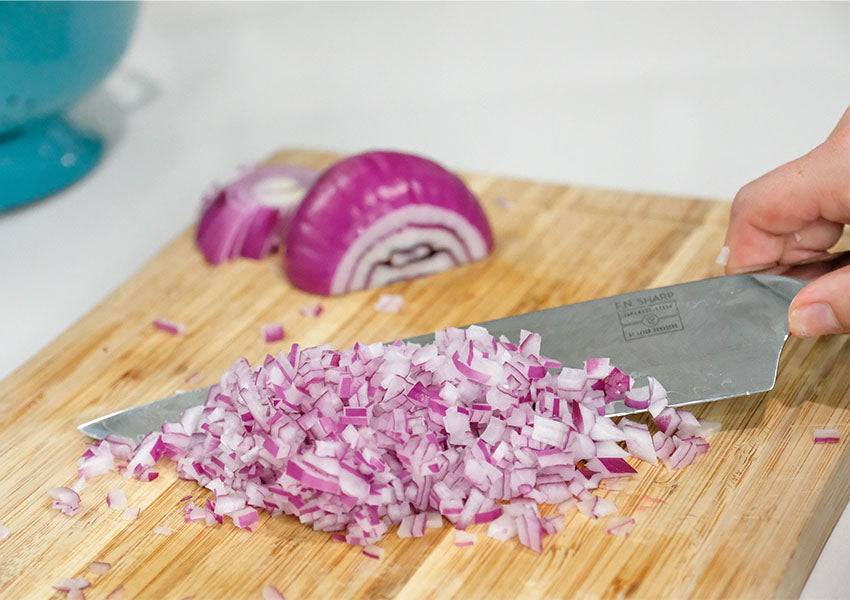How to Take Care of Your Japanese Knife for Barbecue Enthusiasts
Written By James Morgan
For barbecue enthusiasts, owning a Japanese knife can be a game-changer in the kitchen. Not only are these knives incredibly sharp and precise, but they also add a touch of elegance and tradition to your culinary arsenal. However, taking care of such a specialized tool requires specific knowledge and routines. So, how do you take care of a Japanese knife to ensure it lasts for years and remains in top condition?

Why Japanese Knives are Special
Japanese knives are celebrated for their meticulous craftsmanship and exceptional sharpness. Made from harder steel compared to their Western counterparts, they offer precision cuts that are perfect for intricate tasks. Barbecue enthusiasts will find that a Japanese knife can make preparing meats, vegetables, and other components a breeze.
The Different Types of Japanese Knives
Before diving into the care tips, let's explore the different types of Japanese knives you might have in your kitchen:
- Gyuto: The all-purpose chef's knife, great for slicing and dicing.
- Santoku: Another versatile knife, ideal for chopping, slicing, and mincing.
- Yanagiba: Perfect for slicing fish and other delicate items.
- Deba: A heavy-duty knife used for cutting through fish bones and meat.

Proper Cleaning Methods
Cleaning your Japanese knife properly is crucial

Cleaning and Drying: Japanese Knife Care
One of the fundamental steps in maintaining your Japanese knife is ensuring it is always clean and dry. After each use, immediately wash the knife with warm water and a mild detergent. Avoid using abrasive sponges or dishwashers as they can damage the blade. and dry it immediately with a soft cloth. For detailed tips on cleaning Japanese kives Proper Sharpening Techniques
- One essential aspect to maintain the sharpness and longevity of your Japanese knife,is regularly sharpening it. The best method is using a whetstone. You can refer to this guide on How to Sharpen Japanese Knife with Whetstone for comprehensive steps
- Ensure that you maintain the correct sharpening angle, usually between 10-15 degrees for most Japanese knives. Read more about What Angle Should a Japanese Knife be Sharpened

Preventing Rust and Stains
Japanese knives, especially those made from high-carbon steel, are prone to rust and stains. To prevent this, make sure your knife is always dry before storing. For more tips, check out How To Get Rust Off Japanese Knife. Also, consider applying a thin layer of food-grade mineral oil to the blade to create a protective barrier.
Safe Storage
Proper storage is another crucial aspect of care. Avoid storing your Japanese knife in a drawer where it can knock against other utensils. Instead, use a knife block, magnetic strip, or a blade guard to protect the blade. Learn more about How to Hold Japanese Knife for proper handling and storage.
Regular Maintenance
Incorporating regular maintenance routines will ensure your Japanese knife remains in top condition. Here are some quick tips:
- Regularly check the knife for any signs of damage or dullness.
- Use a honing rod to realign the blade between sharpening sessions.
- Ensure the handle is clean and free of food residue to maintain a secure grip.
The Importance of a Sharp Knife in Barbecue
For barbecue enthusiasts, a sharp knife is indispensable. Whether you're slicing brisket or chopping vegetables, a well-maintained Japanese knife will enhance your precision and efficiency. Read our post on How to Hold a Japanese Knife to maximize your barbecue experience.
For more on safe knife handling techniques, visit Knife Handling & Cutting Techniques
FAQ
-
How often should I sharpen my Japanese knife?
It depends on usage, but a general rule of thumb is to sharpen your knife every 2-3 months. Refer toHow Often to Sharpen Japanese Knife for detailed guidance. -
Can I put my Japanese knife in the dishwasher?
No, always handwash your Japanese knife to prevent damage and prolong its lifespan. -
How do I remove rust from my Japanese knife?
If your knife develops rust, use a rust eraser or a mixture of baking soda and water to gently scrub it off. For more tips, refer to How to Get Rust Off Japanese Knife
As an Amazon Associate, I earn from qualifying purchases.



